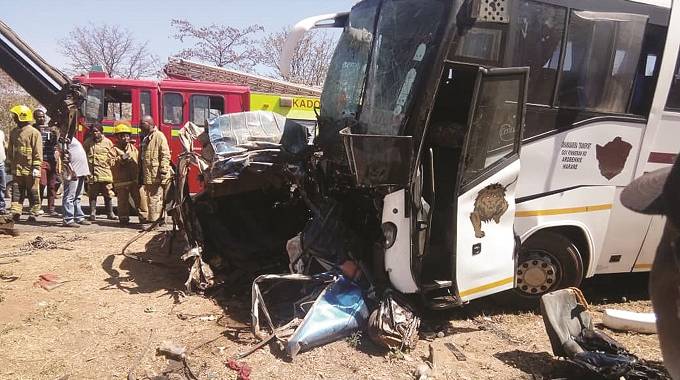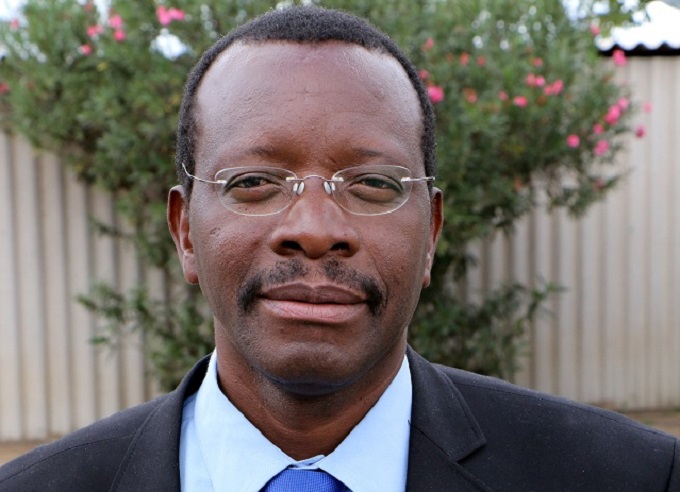Expedite road safety policy implementation

Gibson Mhaka
ROAD safety has indisputably become a global issue that ranks as one of the most pressing matters facing modern society today.
In Zimbabwe various strategies and campaigns were implemented in the past, with varying degrees of success in slowing down the rate of fatalities over time.
At a global level, the World Health Organisation (WHO) Road Safety Status Report of 2015 defined the problem of road injuries as a major public health issue.
Road fatalities and injuries were projected to be the third leading contributor to the global burden of disease and injury by 2020.
The report further says by 2030, road traffic crashes are expected to become the fifth leading cause of fatalities worldwide, overtaking Aids, tuberculosis, and cancers of the trachea, bronchus, and lungs.
Road crashes have also been identified both globally and domestically as a socio-economic challenge and a huge economic burden for developing countries like Zimbabwe.
This is because people injured or killed on our roads are often the breadwinners of their families and thus vital contributors to the economy at large.
It is against this background that road safety in Zimbabwe should be a major public concern as statistics by the Traffic Safety Council of Zimbabwe (TSCZ), the principal agent in promoting traffic safety in the country, shows that an average of 1 800 people are killed on Zimbabwean roads annually while 30 000 others are injured.
Studies have also shown that the road safety situation in the country is bad when compared to other developing countries of the world.
Addressing deficiencies in the country’s road safety measures, President Mnangagwa recently directed the police to descend heavily on reckless drivers.
Consoling families that lost relatives when a Chawasarira bus collided head-on with a commuter omnibus at the 152km peg along the Harare-Bulawayo highway, President Mnangagwa urged the police to be tough on negligent drivers.
“The death of 13 commuters in a traffic accident near Kadoma has once again highlighted the needless loss of precious lives on our roads through negligent driving. That so many lives continue to be lost repeatedly suggests growing indiscipline on our roads.
“A robust response by way of enforcement of traffic rules is thus required. All transport operators must respect life and limb by ensuring that their vehicles are roadworthy and that their drivers exercise maximum caution on the road,” said President Mnangagwa.
The accident killed 13 people on the spot and left 23 others injured. The bus had 31 passengers and dragged the kombi for about 75 metres, killing all its occupants.
Similarly, TSCZ, whose statistics showed that 90 percent of road traffic accidents were caused by human error, and were, therefore, avoidable are lobbying Government to impose mandatory custodial sentences to people who drive without licences among other stiffer penalties on errant drivers.
“We shall be making recommendations for the Government to review selected traffic penalties to reflect the tragic reality of non-compliance.
“Our fines are not deterrent enough as compared to the region. For example, driving a public passenger vehicle without a licence should attract a custodial penalty as is the case in other countries,” TSCZ said.
TSCZ said there was also need to give safety considerations precedence in all roadworks, both in rehabilitation and new construction, such as reflective or luminous paint and cat’s eyes as a base standard.
“Government should pursue the establishment of a Road Accident Fund so that any person injured in a road crash is availed medical attention. They should also explore the prospect of building a ‘Golden Hour’ emergency road rescue service that crash victims will receive assistance within an hour of the crash occurring,” they said.
In 2016, Government increased road traffic fines in a move to try and curb road accidents, and then Finance Minister Patrick Chinamasa in his 2016 National Budget announced that driving without a licence, overtaking over a solid white line, and proceeding against a red robot would attract a fine of $100.
President Mnangagwa made the call because it is also one of the roles of Government to implement the measures and controls to ensure road users have the freedom to move safely and ensure that citizens respect the traffic rules.
In 2015 during his address at the Africa Safety Day National Commemorations in Gweru, President Mnangagwa, who was then Vice-President and Minister of Justice, Legal and Parliamentary Affairs advocated for the need for stiffer penalties including long custodial sentences for errant road users saying the ministry was in the process of reviewing the Road Traffic Act.
“Deterrent penalties must be meted out to errant road users. If stock theft courts a minimum sentence of nine years imprisonment, why should a killer driver be fined a mere $100 and get away with murder? Road carnage destroys lives, limbs and property and it is an enemy of economic growth hence the need to punish errant drivers,” he said.
From President Mnangagwa and TSCZ’s calls it is clear that road safety has become a major concern for the regulatory authorities in Zimbabwe hence there is a timely need to set up a national road safety policy to control road accident injuries and fatalities.
Based on the present statistics by TSCZ which suggest that the number of fatalities in Zimbabwe is not likely to start to decline for many years to come unless new policies are implemented, a national road safety policy can be identified as having potential for substantially reducing fatalities in the country.
It may also be a major step towards improving road safety in the country where the roads are getting more and more congested and unsafe day by day.
The full scope of the road safety problem was documented in the first global conference for Ministers of Transport which took place in 2009 in Moscow, Russia.
The conference outlined the magnitude of the issues and stressed the urgent need for action (road safety policy) to help prevent road traffic injuries and fatalities around the world.
Road safety is defined as the absence of crashes, injuries and fatalities while a road safety policy is aimed at fighting against road accidents and contributes to the improvement of infrastructure and the development of means of mobility to a better security of road users.
It outlines the classification of the causes of accidents and preventive action in terms of vehicle, list of safety features for vehicle design (e.g. safety belt, air bags, collapsible steering, braking performance, fitness certification and maintenance of vehicles).
It also spells out accident black spot investigation and rectification through road design, emergency medical service with emphasis on saving the lives of victims, traffic education and campaign on traffic discipline among other measures aimed at a reduction in the accidents.
A traffic and safety researcher Mr Abel Moyo called on the Government to set up a national road safety policy as a matter of urgency saying it will be a guiding document to change the behaviour and attitude of road users.
“Of all the crashes, human factors account for a large percentage, confirming that these crashes are in fact avoidable and preventable. It is my belief that the setting up of a national road safety policy will be able to change the behaviour and attitude of road users.
“In the event that it is set up, the Government should also make sure that the parties that will be involved in implementing the measures set out in that national road policy have adequate financial resources to reinforce the measures so that they achieve success,” said Mr Moyo.
The challenges faced by the country are exacerbated by poor road infrastructure, vehicle types and features, ineffective traffic law enforcement, poor driving practices, corruption and delayed implementation of road safety policies amongst other factors.
TSCZ information, communications and technical manager Mr Tatenda Chinoda said the setting up of the policy was now at an advanced stage.
“TSCZ has finished a draft on the national road safety policy document which is currently going through scrutiny by the stakeholders, shareholders and stockholders. As soon as it is given the nod we will quickly launch it,” said Mr Chinoda.
If quickly approved, it will be a welcome development to achieve the vision of zero road fatalities and serious injuries.
It should also be an inclusive approach that caters for all groups using the road system, including drivers, motorcyclists, passengers, pedestrians, cyclists, commercial and heavy vehicle drivers.











Comments